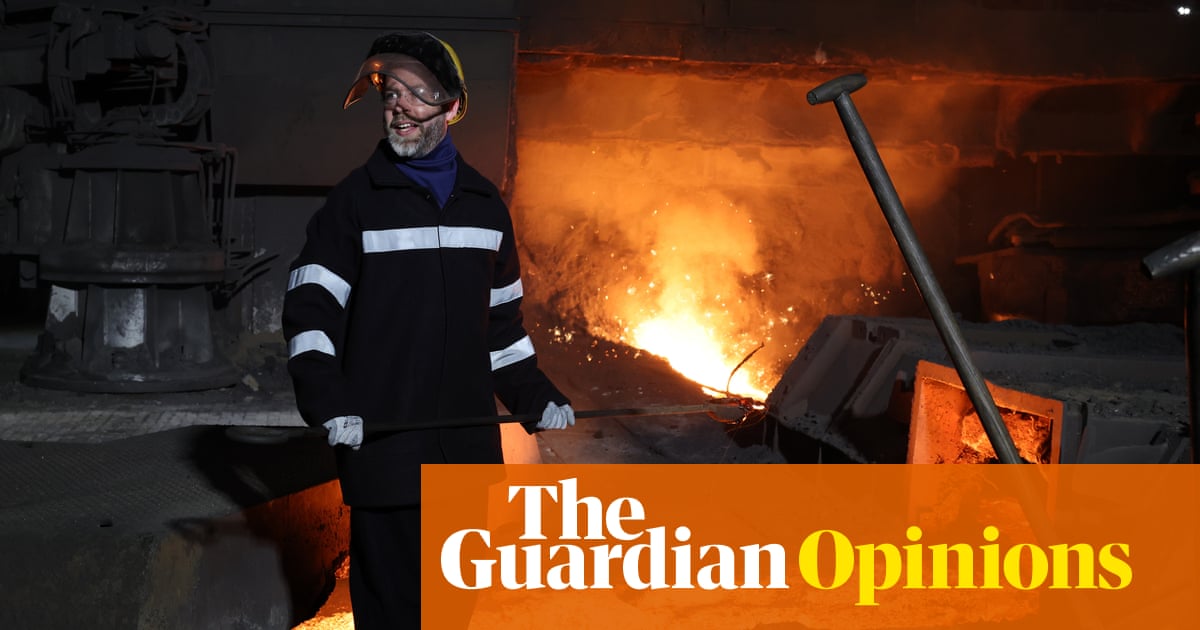The article critically examines the disproportionate attention given to certain industries, such as steel and fishing, compared to others that significantly contribute to the UK economy, such as universities and the creative sector. The author, Zoe Williams, expresses frustration over the political focus on industries that are less economically impactful and questions the priorities of politicians in trade discussions.
Disproportionate Industry Focus
A key point raised is the stark contrast in economic contributions between industries. While steel reportedly contributed £1.7 billion to the UK economy, representing just 0.1%, the creative industries contributed £124 billion in 2023, showcasing a 35% increase since 2010. This disparity highlights an irrational prioritization in political discourse, where sectors with smaller economic footprints receive more attention and protection.
Political Implications
Williams points out that the current trade negotiations involving steel may involve concessions on other critical areas, such as digital taxes, which further emphasizes the skewed priorities. This situation creates a perception that the UK government is willing to undermine other important sectors for the sake of maintaining a favorable relationship with the US. The article suggests a need for a broader discussion around which industries are prioritized and why.
Public Perception and Hidden Agendas
The article aims to raise awareness among the public regarding these inequities and provoke thought about why certain industries are favored over others. It suggests that there may be underlying political motivations driving this focus, potentially distracting from more significant economic contributors that require support and investment. This could reflect a larger narrative about how political interests often overshadow the needs of vital sectors.
Manipulative Elements
The tone and language used in the article suggest a critique of political behavior rather than a balanced analysis of the industries mentioned. By framing the discussion around the negligence of significant economic contributors, the article could be seen as a means to manipulate public sentiment against current political priorities. The emphasis on the contribution of universities and creative industries could be perceived as an attempt to rally support for these sectors, highlighting their importance in contrast to the focus on steel and fishing.
Economic and Political Consequences
The article's implications could resonate with various stakeholders, potentially influencing public opinion and political action regarding industry support. If the narrative gains traction, it could lead to increased advocacy for the creative sectors and universities, prompting policymakers to reassess their priorities in trade discussions and economic planning.
Target Audience
This piece may resonate more with audiences who are stakeholders in the creative industries, academia, and those concerned with economic policy. By highlighting the contributions of these sectors, the article seeks to engage individuals who may feel overlooked in political discourse and encourage them to advocate for change.
Market Impact
In financial markets, the article's focus on the disparity between industry support could influence investor sentiment towards sectors that feel neglected, such as creative industries and education. Companies within these sectors may see increased interest if the narrative shifts towards their importance in the economy.
Global Power Dynamics
While the article focuses primarily on UK domestic issues, it does reflect broader themes in global trade dynamics, particularly regarding how countries prioritize certain industries in international negotiations. The ongoing discussions related to tariffs and trade agreements highlight the interconnectedness of these sectors with global markets.
AI and Narrative Framing
There is no clear evidence suggesting that AI was used in crafting this article. However, the structured argumentation and persuasive language may reflect techniques often employed in AI-generated content, focusing on drawing attention to specific themes and fostering emotional engagement. If AI were utilized, it might have emphasized the contrast between industries to strengthen the overall argument.
In summary, the article raises critical questions about political priorities and economic representation, urging a reassessment of which industries receive attention and support. The underlying message advocates for the recognition of sectors that have a more substantial economic impact, suggesting that current political focus may be misguided.
